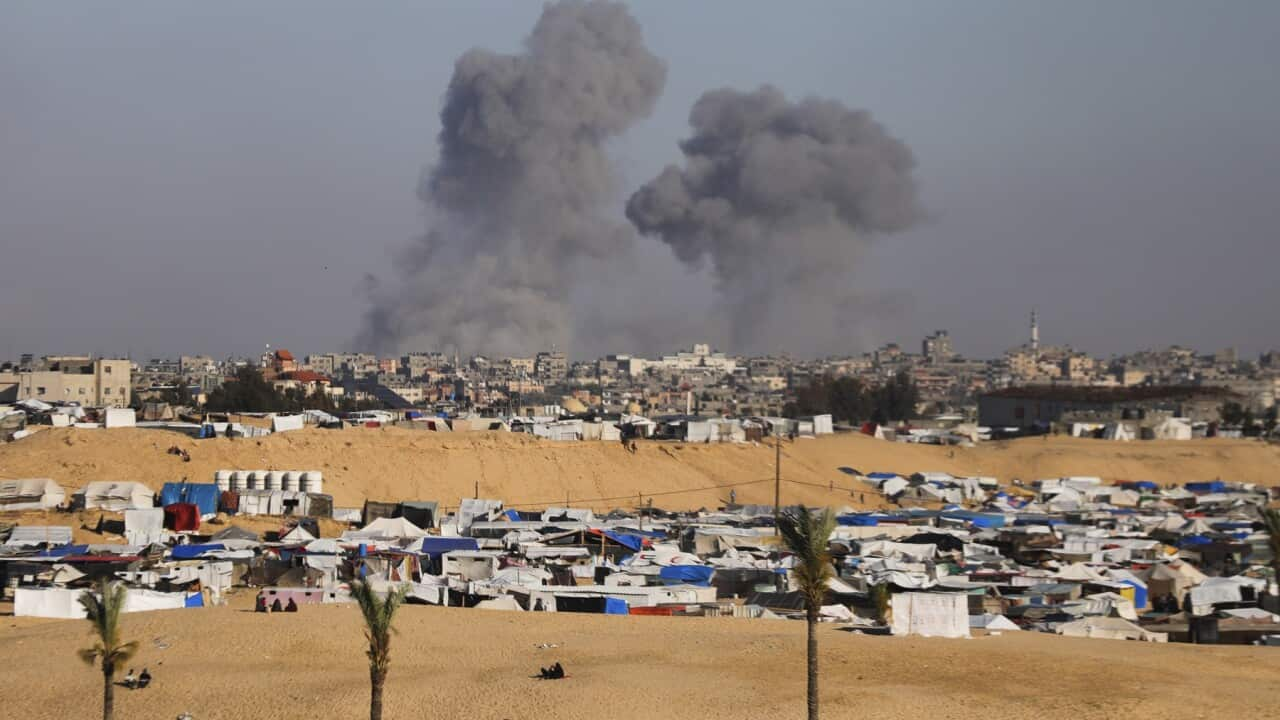TRANSCRIPT
The sound of celebration in Rafah, Gaza after reports Hamas has accepted a ceasefire proposal from mediators Qatar and Egypt.
But the prospect of a temporary halt to the fighting didn't last long.
Israel has downplayed the chances of a ceasefire in Gaza, saying the proposal accepted by Hamas was a watered-down version of an Egyptian offer, and included elements Israel can't accept.
Israeli military spokesman Daniel Hagari says all proposals which would release hostages held in Gaza will be considered, but for now its operations will continue.
"We examine every answer and reply very seriously and find every possibility regarding the negotiations for the return of the hostages to their homes as a central task as quickly as possible and at the same time we continue our operations in the Gaza Strip and will continue to do so."
Israel also says it will send a delegation to Cairo to negotiate further.
The United States says it's reviewing the Hamas response to a ceasefire and hostage release deal, but declined to give any details of what was agreed.
But White House spokesman John Kirby has revealed CIA Director William Burns is in the region having discussions on the proposal.
"The last thing I would ever want to do from this podium is say something that could put this very sensitive process at greater risk. We are at a critical stage right now. We got a response from Hamas. Now, Director Burns is working through that, trying to assess it, working with the Israelis. I mean, my goodness, folks, I don't know that it gets any more sensitive than right now. And the worst thing that we can do is start speculating about what's in it. We've made clear our views about operations in Rafah that could potentially put more than a million innocent people at greater risk. We continue to believe that the hostage deal was the best way to avoid that sort of an outcome while securing the release of those hostages. And as I said, those conversations continue."
Israel's response has been met with frustration, after yesterday accusing Hamas of not being serious about coming to an agreement.
Demonstrators have gathered in Tel Aviv to call on the Israeli government to agree to a deal which would bring home the hostages from Gaza.
“We are here to tell our government that we won’t stop until they bring everybody home now. We need to bring them home in a deal, and end all this suffering and agony that the hostages in Gaza are suffering. Now, before it’s too late.”
In Rafah, residents have expressed similar frustrations toward Israel's rejection of the proposal terms.
Israel says it's currently striking Hamas targets in eastern Rafah where they had told around 100,000 civilians to evacuate from yesterday.
The Israeli military says it's not a wide-scale evacuation and evacuees will be directed to tent cities in Khan Younis and al-Mawasi.
But Palestinians in Rafah, like Soumia Madi, say there's nowhere safe to flee to.
“We want to go to al-Mawasi Khan Younis. How will we go? Will there be tents there for sure? We will be displaced to that area. Is there a safe area there as they say? There is no safe area. There is nothing safe about it. There is no water. If you go there, will you find water? Will we find food? Will there be gas? Will we be able to cope with this rain in the tents? And if the weather is hot, we will burn in the tents, and we will burn outside of the tents. What is happening to us is shameful. Shameful, shameful, shameful. I wish that my voice will reach all the nations, so they can feel with us. The nations outside, like Saudi they are different. To feel with us, to feel with us just once.”
Rafah is packed with displaced civilians.
There's been international pressure on Israel not to invade, with foreign leaders urging Israeli Prime Minister Benjamin Netanyahu to not go ahead with the offensive.
The United Nations agency for Palestinian refugees says the consequences would be devastating for more than a million people.













